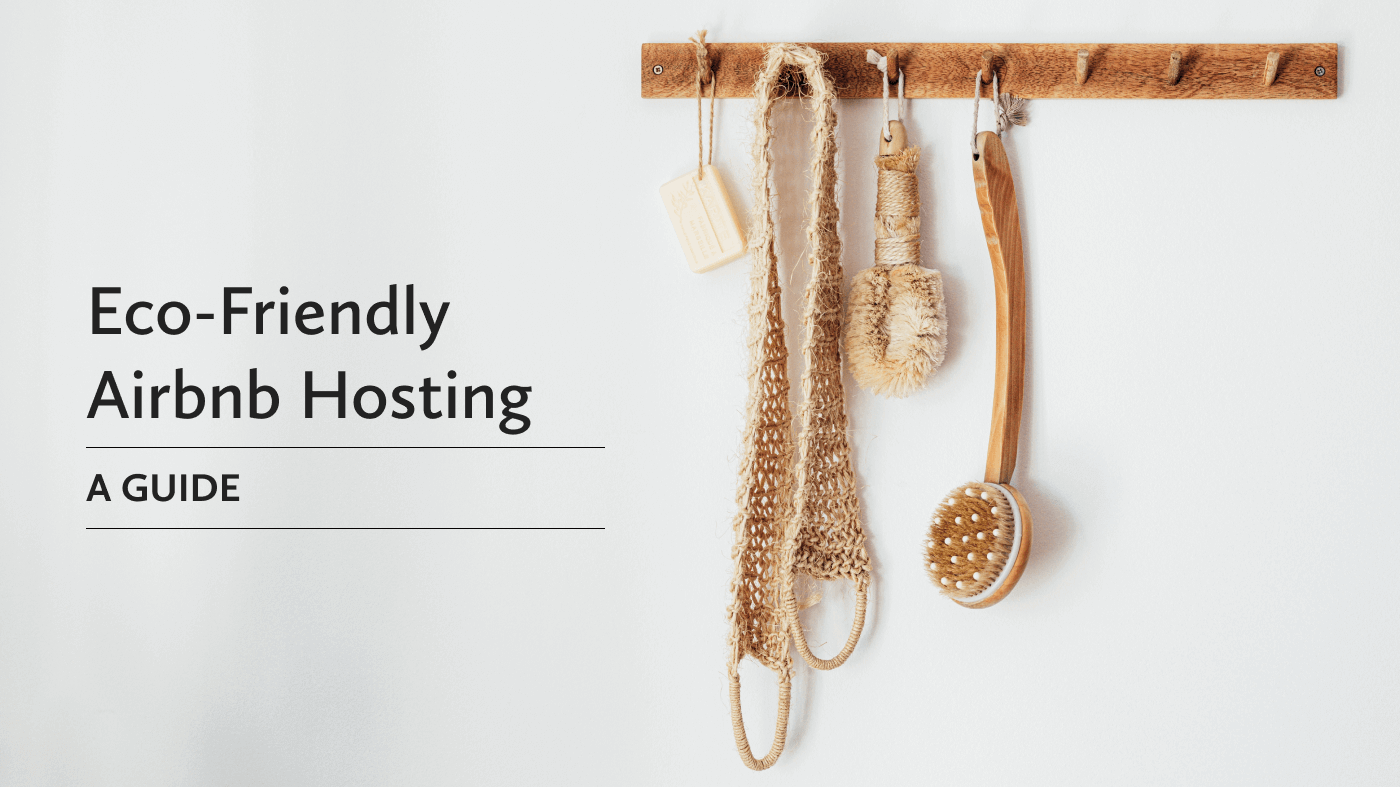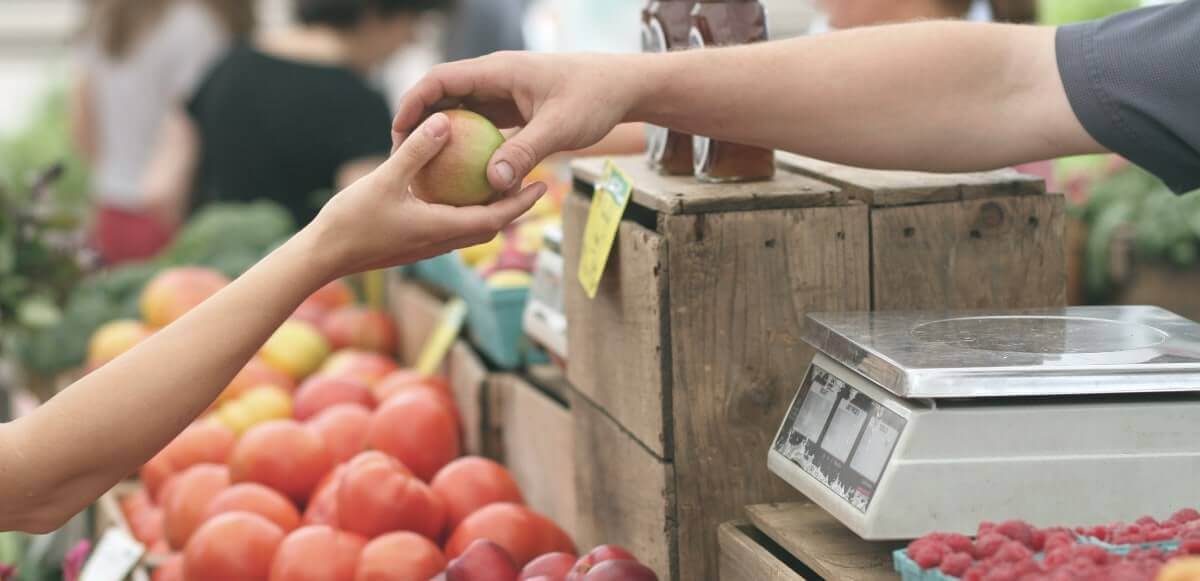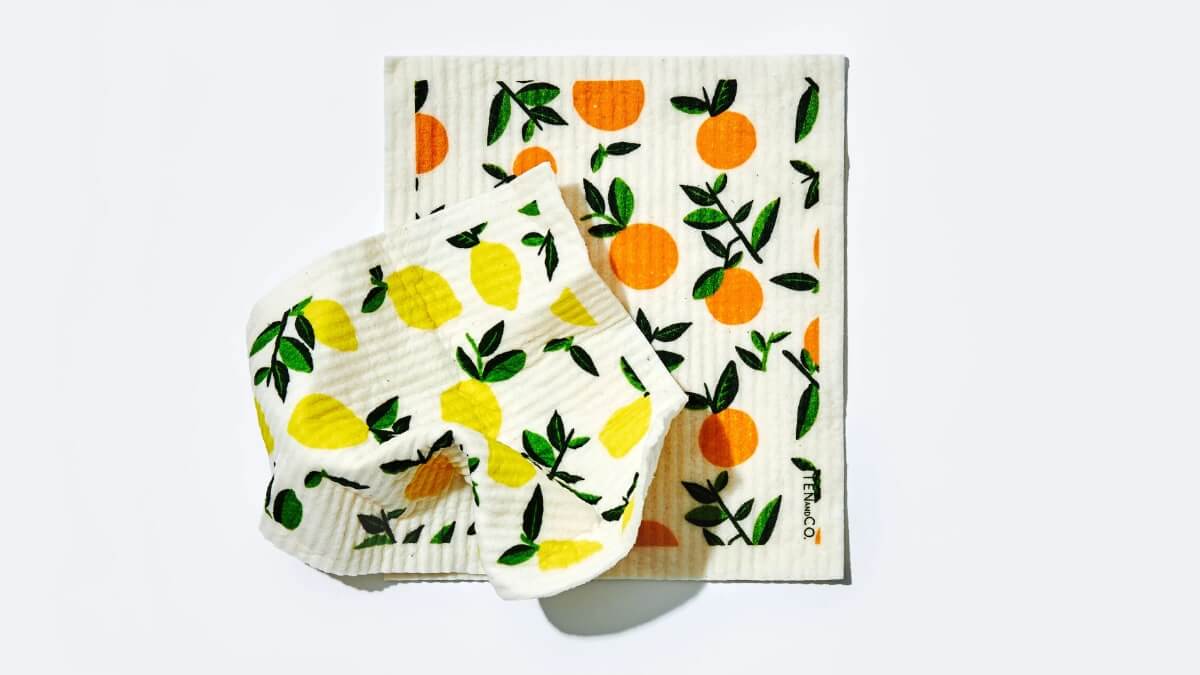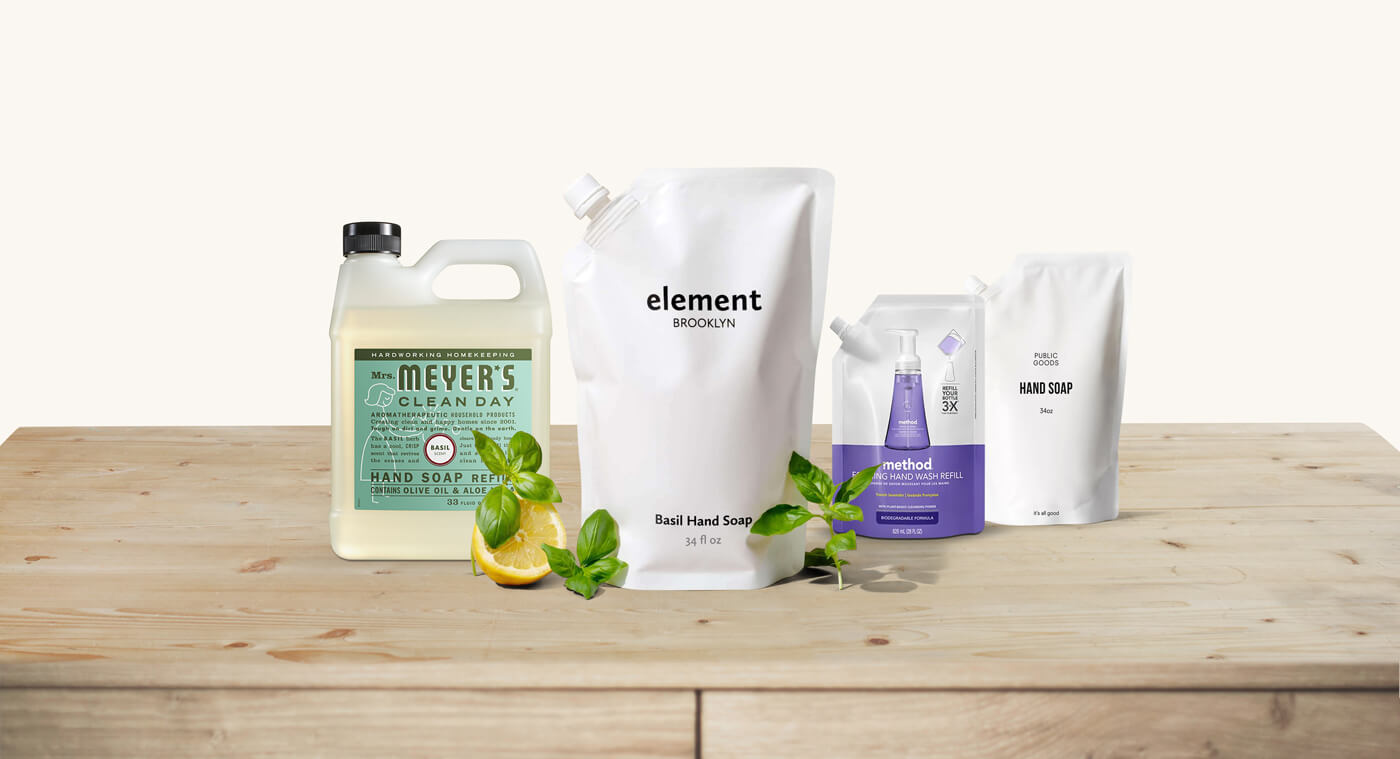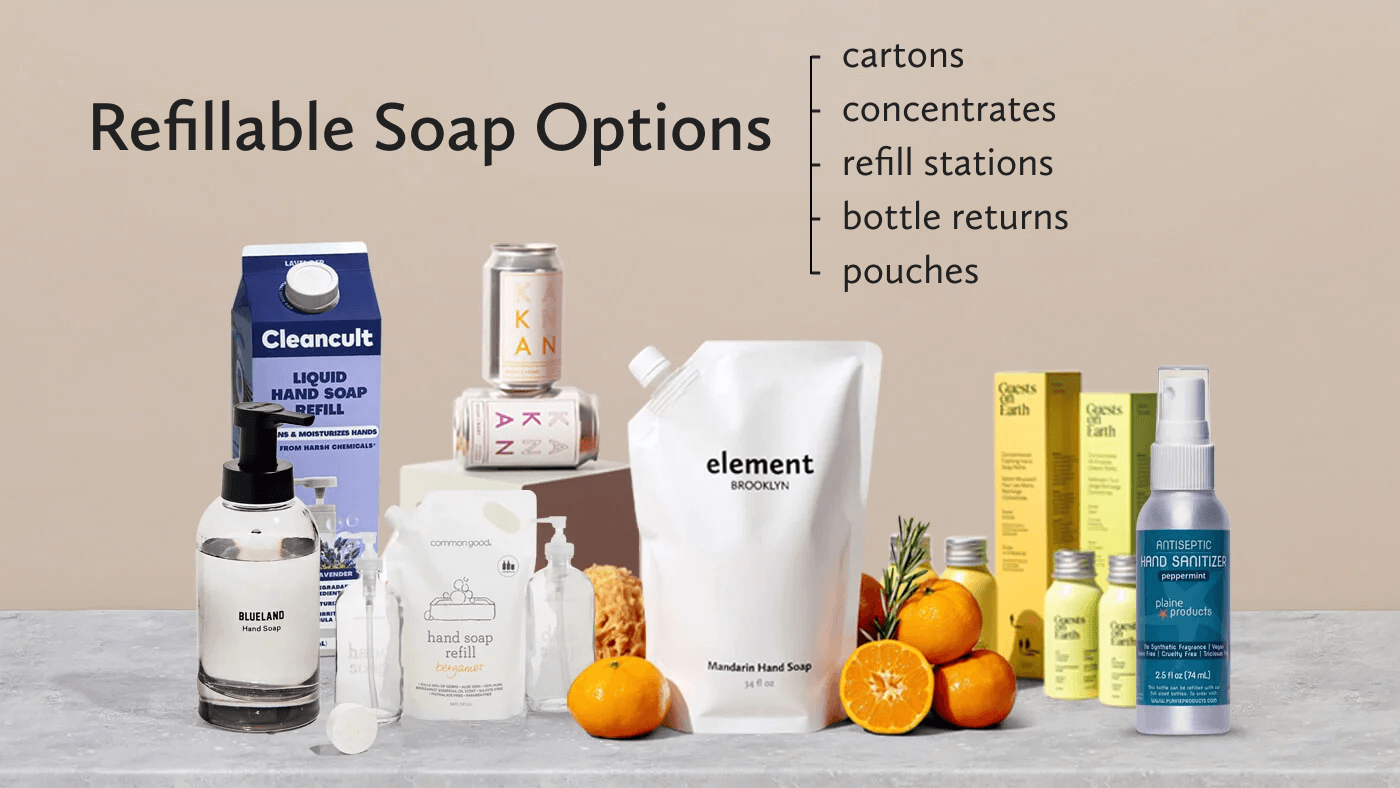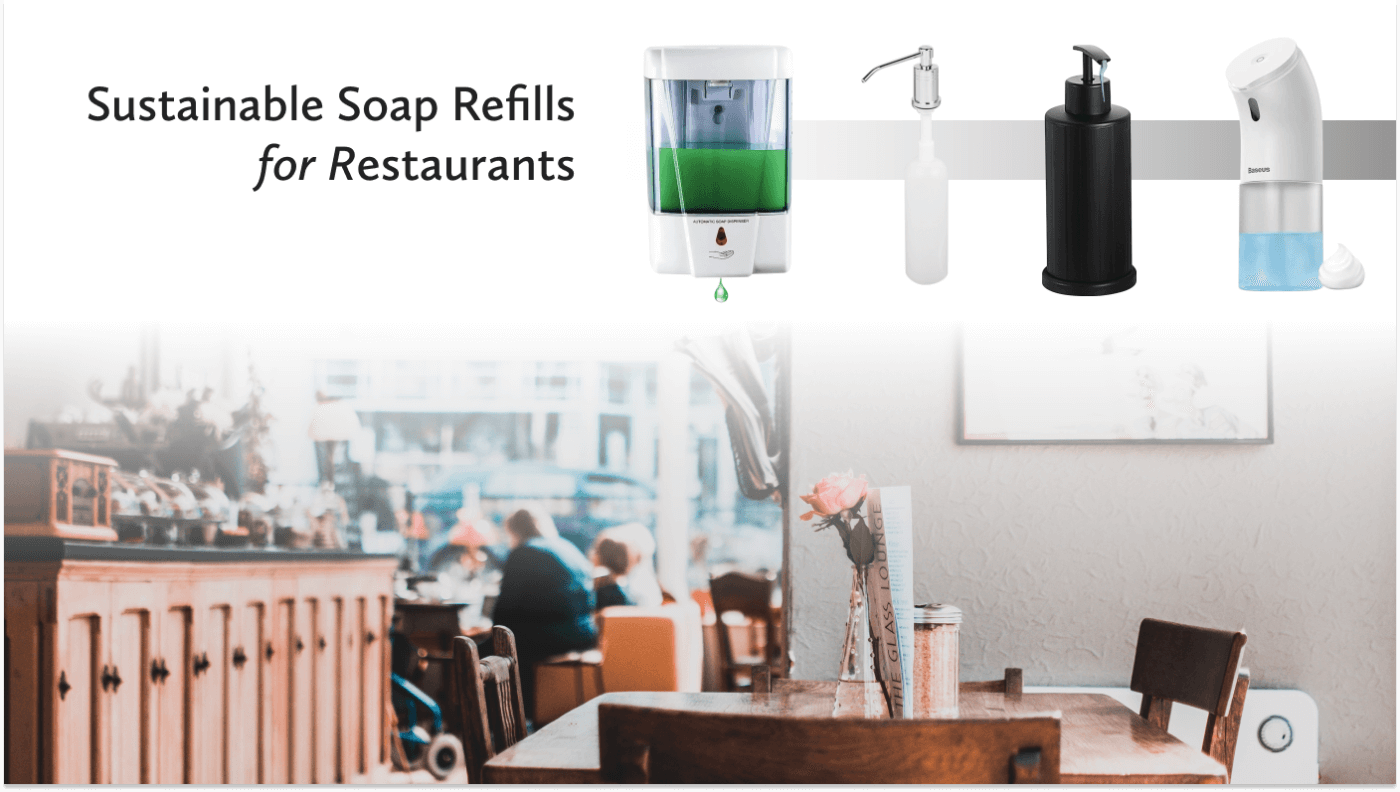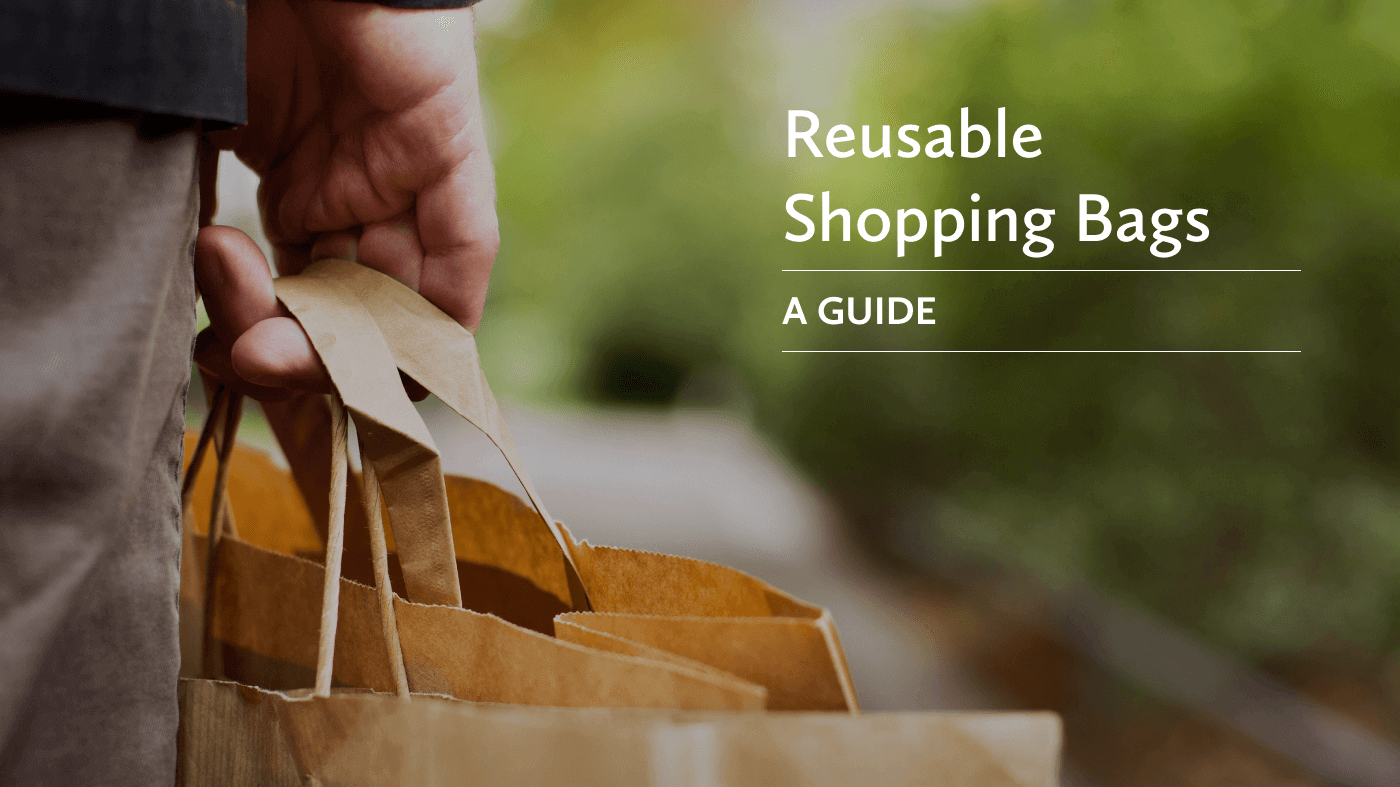Operating a vacation rental is a great way earn supplemental income or to start your own business, but there are many things to consider when preparing your rental property like the day-to-day expenses, what amenities to offer, and how to stand out among competitors. Incorporating sustainable practices can help with all these considerations. By making your rental eco-friendlier, you can cut costs from excess household waste or unnecessary energy use and attract eco-minded travelers with your rental property’s sustainable features.
Eco-conscious travel: a growing trend
According to a 2021 survey from Booking.com, a staggering 81 percent of travelers said they would like to stay in a sustainable accommodation for an upcoming trip. The growing need for accommodations with lower environmental impacts is evident in how vacation rental sites list and advertise the rental units. Flip Key has an entire page dedicated to eco-travel destinations, Booking.com lists sustainable initiatives as an option for hosts to highlight (plus a sustainability badge), and Airbnb has added search filters such as rentals with EV charge stations, off-grid properties, tiny homes, and earth homes – to name a few.
If your listing is a little more conventional than say, a treehouse, don’t worry! There are a lot of ways to incorporate sustainable practices into modern homes to appeal to eco-conscious travelers – while still having all the comforts guests appreciate.
Let’s look at some of the ways to make your vacation rental a little greener:
1. Purchase local supplies
Purchasing locally decreases pollution from transportation, uses less packaging, and supports local businesses. Photo: Erik Scheel
If you’re stocking up your vacation rental’s kitchen with a few cooking necessities (like honey, syrup, butter, or even a welcome bottle of wine), consider stopping by your local farmers market to support small businesses. Or you can purchase decor items locally, whether that’s antiques, handmade blankets, artwork, or real houseplants and indoor herb gardens. Not only does this help keep the supply chain local, but it gives guests a memorable, and authentic sense of connection to the place they’re visiting, setting your rental apart from a run-of-the mill accommodation.
2. Switch to biodegradable cleaning products
Avoid harsh chemicals and single-use cleaning products, like disposable cleaning wipes. Photo: Karolina Grabowska
Chemical cleaning products run the risk of containing volatile organic compounds (VOCs) that can pollute groundwater, or other toxic ingredients that can disrupt endocrine systems and lead to serious conditions. Biodegradable cleaners and laundry soaps contain natural ingredients and are a safer alternative to using bleach, ammonia, or other chemical-based cleaners.
Contrary to many beliefs, biodegradable cleaners aren’t necessarily more expensive than chemical cleaners. In fact, if you don’t mind a DIY project, natural cleaners can cost less to make than buying bottles of store-bought cleaning products. For example, all-purpose cleaner can be made by mixing vinegar, baking soda, and water (and an essential oil for fragrance). Other products like window cleaner or toilet cleaner have similar, simple recipes using low-cost ingredients.
3. Choose eco-friendly household products
Providing vacation rental guests with toilet paper, trash bags and paper towels has become the norm these days and swapping your existing brands for eco-friendly alternatives is quick and easy.
Here’s what to look for in sustainable household products:
Paper Towels and Toilet Paper
This common style of reusable paper towel, also called a "Swedish dishcloth," is cost effective. Photo: Bon Appétit
The manufacturing process to produce single-use paper towels and toilet paper can cause deforestation and increased levels of carbon in the atmosphere. Not to mention, stocking paper towels for guests can get expensive, and ultra-thick toilet paper is pricier than some alternatives.
Here are some sustainable swaps for single-use paper products:
- • Reusable paper towels
- • Organic fabric towels
- • Upcycled scrap fabrics
- • Paper products made from recycled materials
- • Bamboo toilet paper or paper towels
You may also want to consider installing a bidet attachment to your toilet to reduce the demand for toilet paper. Unlike traditional European bidets that are separate, stand-alone units, these trending, space-saving devices fit under the existing toilet seat. Most bidet attachments cost between $30 and $120 and are easily installed in a few minutes.
Trash Bags
Trash bags are made of virgin plastic that require petroleum to manufacture and are estimated to take nearly 1,000 years to break down in a landfill.
Some alternative choices for your vacation rental include:
- • Paper trash bags
- • Certified compostable trash bags
- • Recycled plastic bags (with a high percent of recycled material)
- • Biobased trash bags (made from mostly renewable materials)
4. Make recycling and composting easy
Recycling
Not all common plastics are curbside recyclable. To go the extra mile, offer guests a solution. Photo: CalMatters
Offering recycling options may be as simple as placing a blue bin by the curb, but not every municipality accepts the same items for recycling. Including information about what items your guests can recycle along with some basic guidance (like instructions on thoroughly rinsing food containers), can help maximize the number of items that get recycled.
Additionally, to really stand out, you, (the host), may want to offer extended recycling for items that can’t go in the blue bin. For example, most municipal services do not accept plastic shopping bags, bread bags, dry cleaning, or plastic films — like those used over water bottle packages. However, many grocery store chains, including Walmart and Target, offer drop-off locations to recycle them (be sure to check for locations in your area). Just tell your guests to save their plastic films in a separate bin and take care of the rest after they checkout.
Composting
Depending on your style of vacation rental, an outdoor compost pile or tumbler might be a good fit. Composting reduces the methane that’s released when organic waste breaks down in landfills and minimizes the number of trash bags your rental guests use. However, outdoor composters require a little extra maintenance and may not be an option for every rental unit.
If you don’t have outdoor space in your rental but still want to help with organic waste, an automatic indoor composter (like the Lomi or Beyond Green’s Kitchen Waste Composter) removes any “ick” factor of composting (like odors). These compact, electric units can break down food scraps into compost material within hours. For guests, these devices are extremely easy to use without any learning curve – just place the food waste in and press a button. It’s also a great way to introduce people to the benefits of composting.
5. Upgrading energy efficiency
LED light bulbs are a simple way to reduce energy usage. Photo: Nothing Ahead
There are several quick, and low-cost methods to improve your rental’s energy efficiency, such as sealing dripping faucets to conserve water, changing to LED light bulbs, using low-flow showerheads, and weatherproofing windows and doors. Remind guests to turn off the lights, television, air conditioning, or other appliances by adding this step to your check out requirements.
If you’re still setting up your vacation rental, now is a great time to install energy and water-efficient appliances. One of the easiest ways to find sustainable options is to browse certified products on the Energy Star website. An investment in efficient appliances today can translate to more cost savings in the long run and will help to reduce carbon emissions.
Here are a few appliances and installations to consider:
- • Low-flow toilets
- • High-efficiency washers and dryers
- • Smart home thermostats
- • Energy-efficient desk and ceiling fans
- • Appliances with automatic timers
- • Energy-efficient dishwashers and refrigerators
For even more savings, some regions offer cash rebates to property owners for switching to water or energy-efficient appliances, so check with your local municipality. Additionally, Energy Star has a search tool for federal rebates on heating and cooling, insulation, and other sustainable home upgrades.
6. Offer bicycles
If you live in an area that’s easy to navigate, providing bicycles can appeal to guests who are traveling without a vehicle (or offer a welcome break for those who are). Getting around town by bike is a rewarding, sustainable way to take in the sights. Enhance guests' experiences with tips and pointers on some bike routes or even some of your favorite stops and local shops.
7. Use soap refills
Some of the soap refill options available.
One of the easiest, and cost-saving ways to prioritize the environment is to switch to refillable soaps instead of using single-use, plastic containers. This includes refillable shampoos, conditioners, body wash, and hand soap. Refills are available in a variety of bulk dispensing methods, and dramatically reduce how much plastic is being produced for guests’ sanitary needs. If you’re listing your vacation rental on Booking.com, removing single-use plastics is one of the options for sustainable initiatives that you can highlight so that your rental stands out.
A stylish, refillable hand soap dispenser also serves as a memorable, visual décor item – especially if it’s filled with a unique, pleasant fragrance, like Element Brooklyn’s refillable soaps in basil and sea buckthorn or mandarin orange. Both hand soap refills are scented with essential oils to provide guests with a soothing sense of luxury.
8. Education
Finally, be sure to let your guests know what you’re doing to help the environment so they’re aware of the changes. You can showcase these additions on your Airbnb vacation rental listing, or leave a decorative welcome note on the door, counter, or pillow about eco-friendly features they’ll enjoy. Get creative! Small, thoughtful touches can go a long way in your guests' overall experience, and might even give them some ideas for sustainable practices they can put into place in their own homes when they return from their trip.
